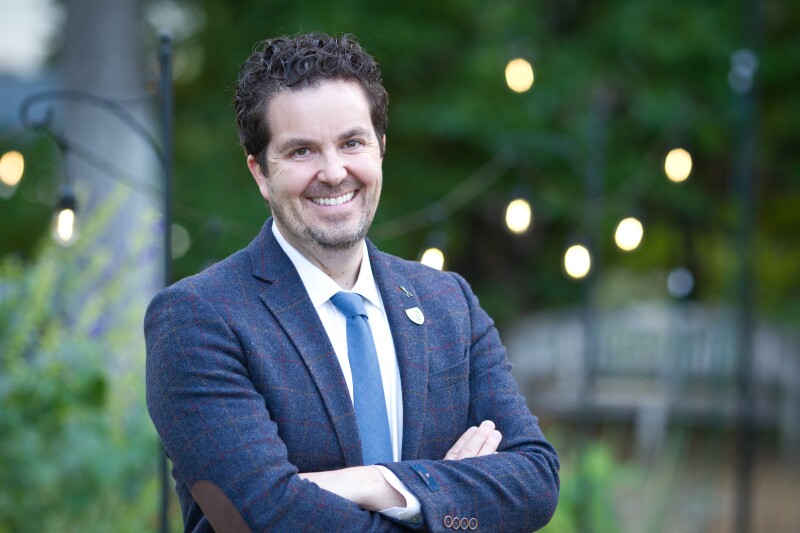Tyler Johnson is an oncologist and clinical assistant professor at Stanford University. Through his church callings, he has spent years working with young adults and cares deeply about those struggling with questions of faith. His book When Church Is Hard explores common questions as well as how to make church a more welcoming place for all.
We recently spoke with Tyler about his experiences writing the book.
As an institute teacher and bishop, what did you learn from speaking with young adults about their faith questions?

“Oftentimes, young people conclude—for very deeply held, thoughtful reasons—that there seem to be contradictions or conflicts between their deepest ethical obligations and their commitments inside the Church. This brings a great amount of spiritual suffering that I honor, and that is real, meaningful, and important. I fear that oftentimes, our response, as people who are slightly older in the Church, is to assume that if younger people feel that sense of conflict, it must be a sign of them not being spiritually serious or being entirely wrongheaded or misinformed. And that’s just not true. In my experience, if anything, it’s the opposite.”
How did your experiences shape your decision to write this book?
“This book is meant to try to take entirely seriously many of the concerns that I have heard from young people, both about their personal engagement with the gospel in terms of questions like ‘What does it mean to know that the Church is true?’ or ‘What does it mean to have faith or to have a testimony?’ but then also in terms of larger questions like ‘What is the place of the Church in the world?’ or ‘What should I make of the plight of members within the faith who feel marginalized?’ The book attempts to grapple candidly and forthrightly with those topics.”
As an oncologist, you help people manage and treat cancer. What parallels do you see between physical and spiritual pain?
“The reason that we have pain is to focus our attention on something that needs to change. So, if I take my hand and put it on a burner, the reason that pain comes to my brain is to make me move my hand away so that I don’t end up burning through muscles and nerves and doing damage. By the same token, I think that when young people (or any people) come to us and say, ‘Hey, the way that we as Church members are acting is creating a problem or making it so that this group of people feel uncomfortable and have a tough time at church,’ if we can look at that as a pain signal coming from the body of Christ, then we can see it as something we need to address. If you’re feeling pain, it’s almost never a good idea to say, ‘Maybe I’ll just ignore it and the pain will go away.’”
How can those who feel comfortable at church help those who do not?
“I would like to suggest that oftentimes, what those who are grappling with their church membership are actually doing is calling all of us as church members to better live up to our Christian covenants and calling. I hope those who feel comfortable with church membership will take the opportunity to speak with those who are grappling with these questions to see what they can teach us.”
What would you recommend to those supporting young people who are navigating complex questions?
“We need to focus on empathy before we focus on answers. If a person comes with a deeply felt question about the gospel, it may be true that they are looking for the actual substantive cognitive answer. But often, the primary thing that will mean the most to them is you honoring the personal goodness behind the question. I think that sometimes we’re so much in a rush to present the ‘court case’ defense that we neglect the fact that this concern is coming from a place of deep goodness, which offers us a mutually shared starting point so that we can then move together toward a place of healing. Finally, I would recommend that all of us—those who feel comfortable and those who do not—focus on the scriptural exhortation to ‘seek this Jesus.’”
▶You may also like: Someone I love doesn’t see the need to go to church. What can I say to them?
When Church Is Hard
If you are struggling with questions and seeking to square your intuitive sense of the good found in the Church with questions about its history, doctrine, culture, or practices, this book is for you. Available at Deseret Book and deseretbook.com.



